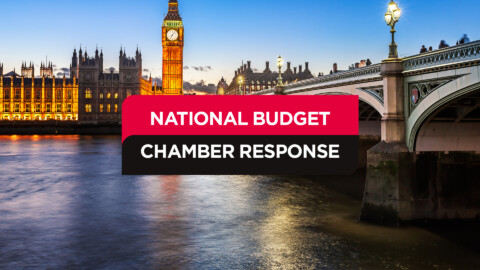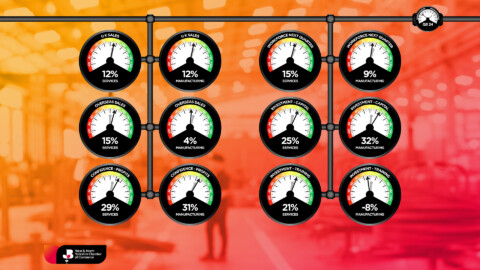Chamber’s five-point plan for the region’s economy
West & North Yorkshire Chamber Commerce today sets out a five-point plan for the region’s economy ahead of the forthcoming general election.
Following the publication of the main political parties’ manifestos and ahead of the July 4 poll, the Chamber has set out five areas of action that can boost Yorkshire’s economy.
These take in infrastructure, skills, devolution and the hospitality sector. Underpinning all these individual action points is the need for the next government to create a climate of stability for businesses that allows them to grow, invest and create jobs.
With the umbrella organisation British Chamber of Commerce having published its national manifesto, the West & North Yorkshire Chamber wished to produce a hyper-local version that spoke to the region’s key requirements for economic growth.
Specifically, the Chamber is calling for the following changes on its five priority areas:
1) Stability: Businesses need the next Government to foster a pro-growth culture for start-ups, scale ups and any business wanting to create jobs, economic prosperity and export opportunities. A climate of stability will give our firms the confidence to carry out these measures and generate wealth for the region.
2) Infrastructure: The Chamber calls upon the next government to commit to improved connectivity between the east and west of the North of England, both by rail and by road. Specifically, we would wish to see firm commitments to build Northern Powerhouse Rail in full and to the dualling of the A64. In addition, we wish to see a firm commitment to a new through station for the city of Bradford.
3) Skills and digital: This remains the number one issue that businesses tell us they are facing, with 66 per cent of firms saying they struggle with the recruitment and retention of staff. On education, the curriculum currently in use if more than a decade old and contains no mention of the tools that will shape the future such as cyber security and artificial intelligence. This needs to change. Similarly, adults in need of upskilling require simpler access to apprenticeships and module learning. Much of these areas are already being successfully addressed through the Local Skills Improvement Plans that we and other Chambers are administering nationally. We would call for the LSIP programme to be extended beyond 2025.
4) Devolution: We would like to see our two Mayoral Combined Authorities handed greater controls over areas such as health and taxation, ensuring that key decisions are made by those who know the region best. This model has been successfully rolled out in Greater Manchester and the West Midlands and should be replicated in our region.
5) Backing for the hospitality sector: As the first sector to close and the last to reopen during the pandemic, we would wish to see greater support for this much-loved sector. A reduction in VAT has been something the Chamber has long called for to support the sector. We would also like to see further action taken to lessen the burden of energy bills and explore the possibility of adding the sector to the Shortage Occupation List to assist with the ongoing crisis around staffing.
Mark Casci, head of policy at West & North Yorkshire Chamber, said: “With the election campaign now in full swing, it is vital that all parties harness the power of the North of England and recognise its potential to empower economic growth.
“The measures laid out in our five-point manifesto will not only benefit Yorkshire but the whole country, creating a sustainable and growing economy that can fund much-needed reform for the public sector.
“Unlocking the potential of the North of England has been talked about for many years and this election campaign presents the perfect opportunity to commit to reform that can deliver opportunity more evenly around the country.”
West & North Yorkshire Chamber’s manifesto is published after BCC’s national document was released, in which it called for an industrial strategy around green innovation, better skills policy, reform of business rates, improved global trading conditions and a digital revolution.








